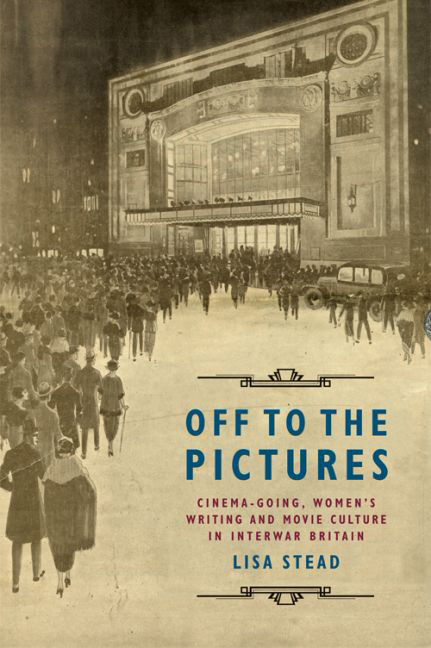Book contents
- Frontmatter
- Contents
- List of Figures
- Acknowledgements
- Dedication
- Introduction
- 1 Off to the Pictures: Cinema, Fiction and Interwar Culture
- 2 Screen Fantasies: Tie-ins and the Short Story
- 3 Middlebrow Modernity: Class, Cinema-going and Selfhood
- 4 Wander, Watch, Repeat: Jean Rhys and Cinema
- 5 Film Talk: C. A. Lejeune and the Female Film Critic
- 6 Elinor Glyn: Intermedial Romance and Authorial Stardom
- Afterword
- Bibliography
- Index
3 - Middlebrow Modernity: Class, Cinema-going and Selfhood
Published online by Cambridge University Press: 15 September 2017
- Frontmatter
- Contents
- List of Figures
- Acknowledgements
- Dedication
- Introduction
- 1 Off to the Pictures: Cinema, Fiction and Interwar Culture
- 2 Screen Fantasies: Tie-ins and the Short Story
- 3 Middlebrow Modernity: Class, Cinema-going and Selfhood
- 4 Wander, Watch, Repeat: Jean Rhys and Cinema
- 5 Film Talk: C. A. Lejeune and the Female Film Critic
- 6 Elinor Glyn: Intermedial Romance and Authorial Stardom
- Afterword
- Bibliography
- Index
Summary
[T]his is the day of the middle classes, and the middle classes are sadly inconspicuous on the film … do not mistake me. I am not advocating more domesticity for our sex. But seeing that it exists in such a large measure in real life, why not let it play its normal part in life as depicted on the screen? The family and home aspect of fictitious film folk would make almost any story more appealing. It is of recognised importance to the novelist – so why not the scenario writer?
M. MargerieWriting on the topic of ‘The Domestic Drama’ in 1918, Pictures and Picturegoer 's ‘Movie Margerie’ expressed frustration at the seeming lack of normalised, middle-class images in cinema towards the end of the teens. The editress called for greater representation of ‘the man who is just cashier or department chief instead of Wall Street magnate, and the wife who is good-looking and interesting enough but goes shopping with a basket and possibly runs a home minus a maid’ (1918: 353). Margerie's lament pre-empts a shift in British cinema culture, which, between the wars, was soon to remedy this absence, proving itself in many ways characterised by its middle-class and middlebrow sensibilities. Margerie also indirectly draws attention to a significant category of interwar literature that intersected with the increased filmic interest in representations of the middle-classes at this time. The middlebrow novel was the primary literary form in which such ‘domestic dramas’ indeed found precedence, constituting a commercially successful and widely read mode of fiction. What Nicola Humble (2001) has specifically termed the ‘feminine middlebrow novel’ was to prove the textual arena in which the lives, loves and labours of the middle-classes proved ‘of recognised importance’ (Margerie 1918: 353).
Critics such as Lawrence Napper (2000, 2009) have explored the middlebrow as a strategic mode of differentiation for British popular culture in this period, marking it out against Hollywood through domestic film production, but also through a broader network of middlebrow forms and fictions in radio, music and publishing. Middlebrow literary fictions were a ready source for filmic adaptation for British studios at this time.
- Type
- Chapter
- Information
- Off to the PicturesCinemagoing, Women's Writing and Movie Culture in Interwar Britain, pp. 69 - 92Publisher: Edinburgh University PressPrint publication year: 2016



